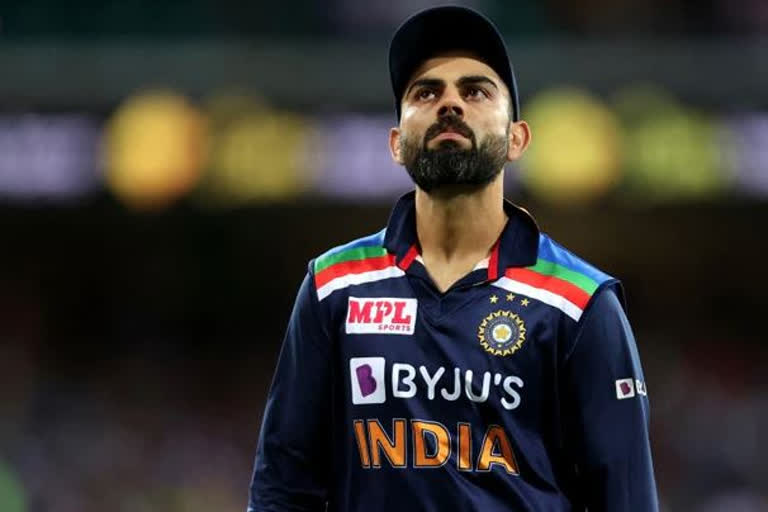New Delhi:Virat Kohli's decision to quit India's T20 captaincy after next month's World Cup is certainly an act of self-preservation in terms of getting his mojo back with the bat but at the same time, the development seems to be a sign of things to come in the ODI set-up.
While Kohli has maintained that he would remain captain in the other two formats, one can't say with absolute certainty that he will be India's 50-over skipper going into the 2023 World Cup at home.
While workload management is an absolutely acceptable reason for quitting T20 captaincy but if one looks at India's calendar till 2023, there are just about 20 bilateral T20 games apart from the World Cup in which Kohli won't be captain.
"Virat knew that he would have been removed from white ball captaincy. If the team doesn't do well at the UAE World T20, he was gone for good as far as white ball leadership is concerned," a BCCI insider, in the know of things, told PTI.
Read: Rahul can be groomed as a future India captain: Gavaskar
"He just reduced a bit of pressure on himself as it would seem that he is there on his own terms. It might not happen for 50 overs if the performance in T20 hits a downward spiral," he said.
So, if the BCCI decides on relieving Kohli from the 50-over captaincy as well in near future, one shouldn't be surprised as this is Indian cricket and fortunes change faster than what anyone can keep up with.
A trophy-less T20 World Cup and Kohli might just have to play as a pure batsman in the 50-over format also.
There are no marks for guessing that even in the dressing room, Kohli's deputy Rohit Sharma is considered as a "leader", who has effectively learnt to take a young troop along, having done that year after year for Mumbai Indians in the Indian Premier League.
It is one of the worst kept secrets in Indian cricket that 'King Kohli', for some time, has not exactly enjoyed the full support of the dressing room.
His style of functioning, according to those who have watched him closely, borders on autocracy with very little room for inclusiveness.
Be it playing two spinners in the World Test Championship final at Southampton or not letting any player settle down in the No.4 position before the 2019 World Cup, his lack of flexibility has often been talked about in hushed tones.
More recently, in the Test series against England, the decision to bench world's No.1 off-spinner Ravichandran Ashwin did stick out like a sore thumb even though India led 2-1.
He did enjoy supreme authority before the Adelaide Test against Australia earlier this year. But the 36 all out and his subsequent paternity break changed a lot of things.
No one would say this openly but players felt more united than ever and were in a very happy space when they rallied to beat a full-strength Australia (unlike 2018-19), including a fabulous drawn game.
By the time, Kohli rejoined the India set-up during the home series against England, he knew that the youngsters, who came of age, had empowered themselves with solid individual performances.
"The problem with Virat is his communication. In case of MS (Dhoni), his room would be open 24x7 and players could just walk in, play the PS4, have a meal and let their hair down and if required talk cricket.
"Beyond the ground, Kohli is literally incommunicado," a former India player, who has seen Kohli's early days of captaincy, told PTI during an informal chat.
